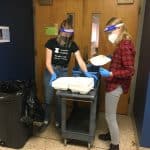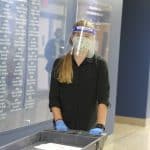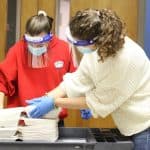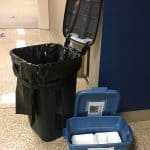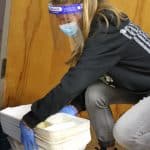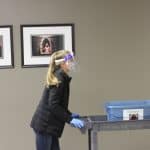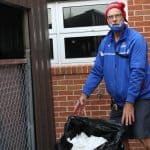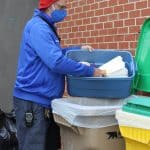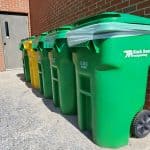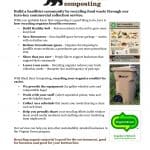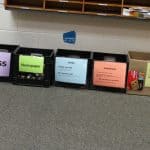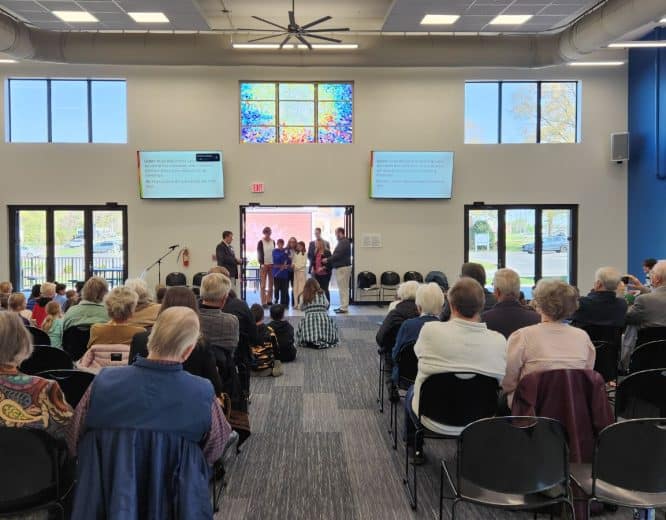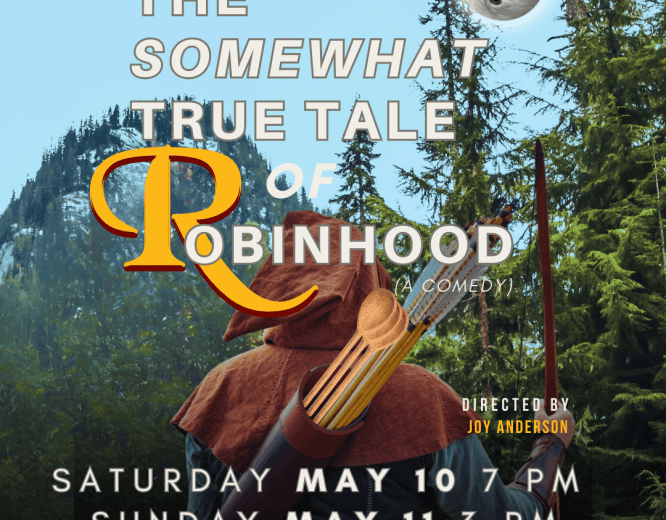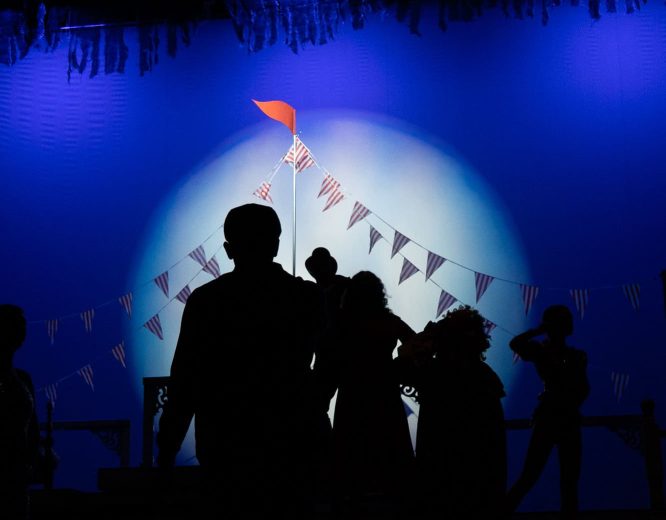Students Manage Lunchtime Composting System
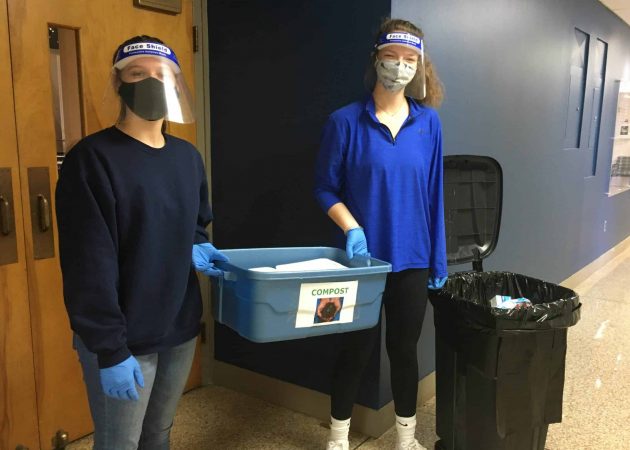
Student volunteers kept approximately 385 lbs. of waste out of the local landfill this fall by collecting and composting the “clamshell” containers used for lunch. The containers were a new addition to school lunches as part of COVID-mitigation efforts, which have served the school well, but added a significant amount to the school’s waste output. Dining hall waste, faculty lounge coffee grounds, and elementary school packed lunch and other waste are also composted.
“Thank you so much for supporting and encouraging us to step out of our comfort zones and really make a difference,” Joelle Blosser, one of the students involved, told a school administrator. “I now know how much you can actually compost and recycle! EMHS is always striving to find our next service project, and I think we have really hit home with composting the clamshells. It not only creates good habits but also teaches us a new way to preserve God’s precious earth.”
Six weeks into the school year — after the basics of day-to-day operations with new COVID protocol was under control — school leaders were ready to tackle the new waste challenge with input from colleagues and students. Kendal Bauman, elementary PE teacher and assistant athletic director, brought the concerned parties together.
“I heard rumblings from others and felt them myself, ‘we’ve got to do something about this!'” In short order, Bauman connected with Lee Good, long-time former EMS science teacher who had coordinated school sustainability efforts in the past, and learned about previous composting efforts with Eastern Mennonite University and recycling.
In this new era, Bauman found that the most likely arrangement for success would be to contract with Black Bear Composting out of Crozet, Virginia, which provides collection containers and liners, does a weekly pick up of the waste, composts and returns a cubic foot of compost for school landscaping annually. “It seemed like a win-win situation all around,” says Bauman, who shared about his own “sustainability journey” as part of chapel for grades 6-12 on Oct. 29. See the video here.
Bauman pulled together students who had expressed interest in sustainability efforts in the past, teachers and administrators to think through a system for the lunch time waste, along with other school wide sustainability challenge. Sidney Rhodes ’22, quickly joined forces with Harriet King ’21 to spearhead the clamshell collection. Outfitted with aprons, gloves and face shields to avoid any exposure to contaminated waste, the two have organized a group of 11 volunteers to collect the clamshells throughout the building each day and take them to the Black Bear containers.
Black Bear provides 65-gallon wheeled carts and compostable bags and collects the waste weekly, leaving clean containers behind.
The clamshell composting builds on long-term composting efforts by the elementary school, which has collected food scraps from lunchtime and kindergarten snack preparation for its 15 years of existence. The scraps were composted and added to school gardens in earlier school locations. Since settling in their new facility at the school’s main campus about a year ago, students and teachers have been working on establishing new routines which include composting and garden areas.
In addition to composting, Bauman has helped to update recycling of paper, appropriate plastic, cardboard and other waste. He’s also coordinated with dining hall staff to collect tin cans and the organic waste generated in the preparation and clean up of food.
Student Interview: Sidney Rhodes ’22
Q. Why did you want to give time to this project?
A. I’ve always been encouraged to listen to science and the immediate threat of climate change by my dad who is an engineer, and by my sister who is now an environmental scientist, so when presented with the opportunity to join the sustainability task force, I joined. I knew that the changes I was working hard to make weren’t really about making things easier now, but more about making choices so that later, our choices won’t be hard to make.
Q. Have you learned anything?
A. Yes! I’ve learned that even organizing other people’s time takes time, and that scheduling, emailing, and coordinating are way harder than you think they would be. I’ve learned to communicate better with the people I work with, and to give myself grace when things don’t necessarily go the right way the first time…
Q. Does it inspire you to consider other sustainability efforts either at school or at home?
A. Yes definitely. I can’t wait to start new projects around school with the Sustainability Task force and continue to add pressure to live more sustainably. I know for me this was just the first on the list of things we’re planning on accomplishing so I’m really excited about what other things we can do.
